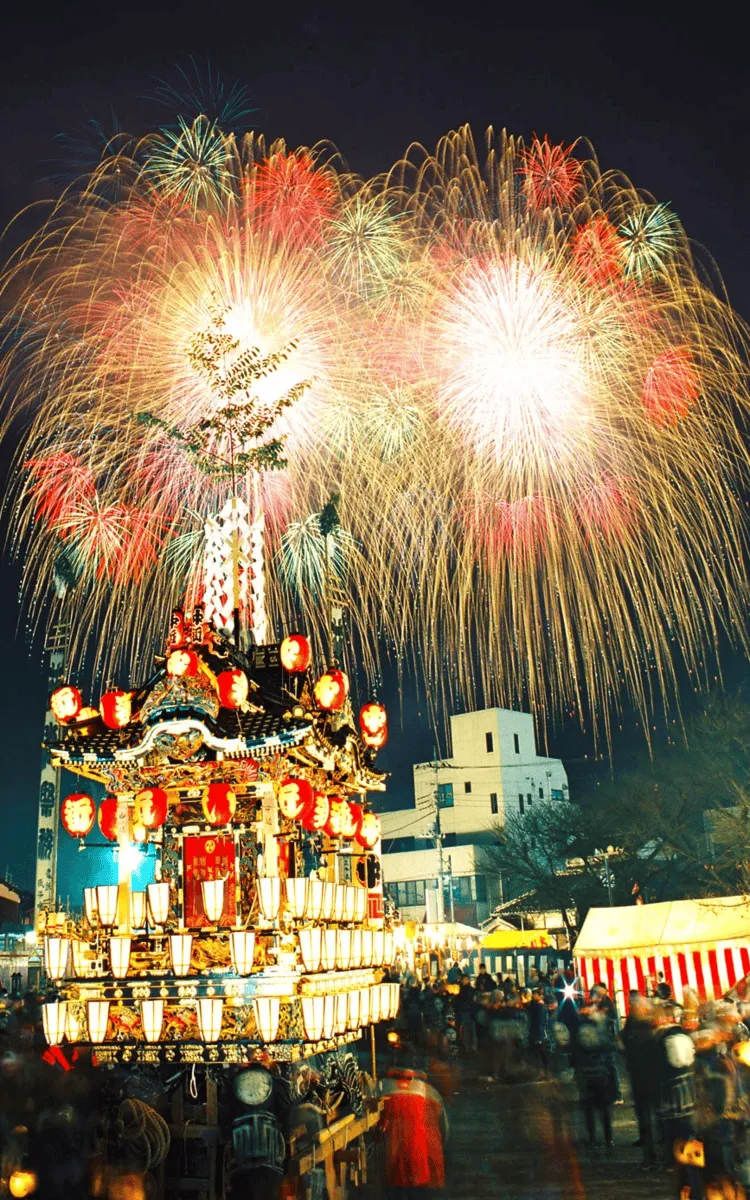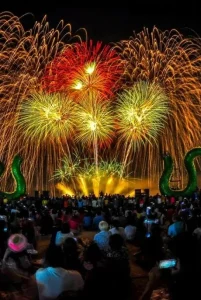Imagine a chilly December evening in a charming Japanese town, where the streets glow with lanterns, music fills the air, and enormous, beautifully carved floats roll by. That’s exactly what happens at the Chichibu Night Festival, also known as Chichibu Yomatsuri, which is one of Japan’s most magical winter festivals. Held every year on 2nd and 3rd December, this festival takes place in Chichibu, a city in Saitama Prefecture, just a couple of hours from Tokyo.
A Festival with a Big Past
The Chichibu Night Festival has a long history — it’s over 300 years old! It is held in honour of the Chichibu Shrine, a very ancient and important place where people pray for protection and give thanks to the gods.
This festival is so special that it’s often called one of Japan’s three great float festivals, right up there with Kyoto’s Gion Festival and the Takayama Festival in Gifu.
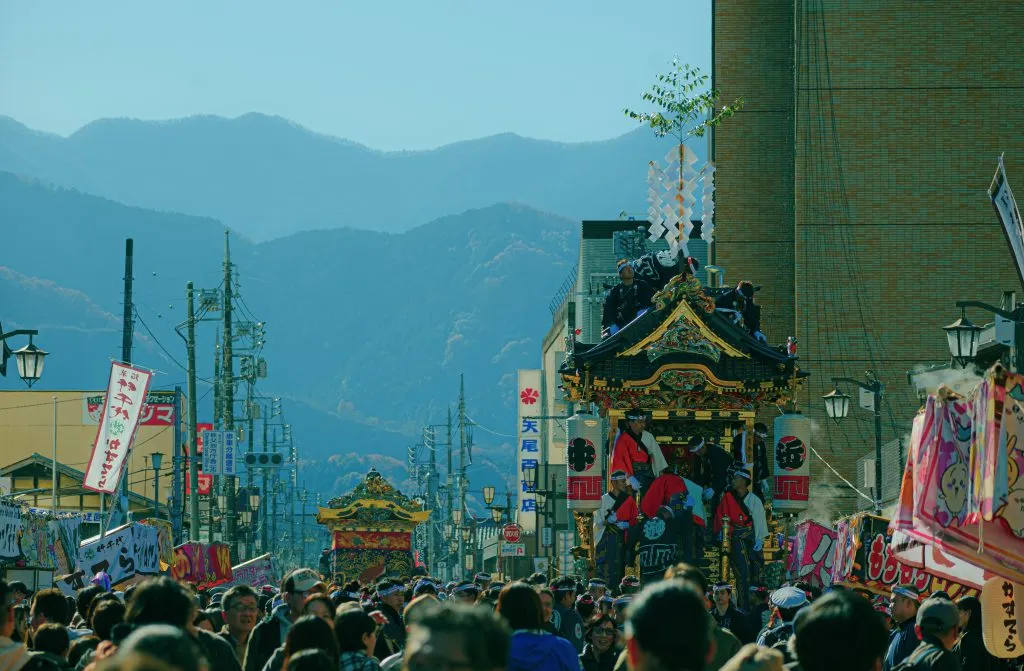
What Makes the Festival So Spectacular
1. The Glowing Floats
There are six huge floats paraded around Chichibu during the festival.
These floats are not ordinary — they are decorated with lanterns, gilded wood carvings, tapestries, and even gold-thread embroidery. Some of them weigh between 10 and 20 tonnes!
There are two main types of floats:
- Yatai – these are more like parade wagons, often with musicians on board playing drums and flutes.
- Kasaboko – also called “flower parasol” floats, which have tall posts with parasols decorated like flowers.
On the floats, there are even theatre performances, such as Kabuki (a kind of traditional Japanese play), and local dances. People riding the floats perform for the crowds as they travel around the town.

2. The Procession and the Big Turn
As night falls, the floats are pulled through the streets by teams. But one of the most exciting moments is called Giri-Mawashi — that means “float rotation.” At key intersections, the float teams carefully turn their massive floats using levers, with everyone working together and chanting.
And then comes a really dramatic part: they haul the floats up Dango-zaka (or “Dango Hill”), which is a very steep slope. Spectators shout and cheer while the float-pullers call out “Hooryai! Hooryai!” (it’s like a chant of energy and encouragement). It’s amazing to see those glowing floats, lit by lanterns, slowly climbing up a hill.
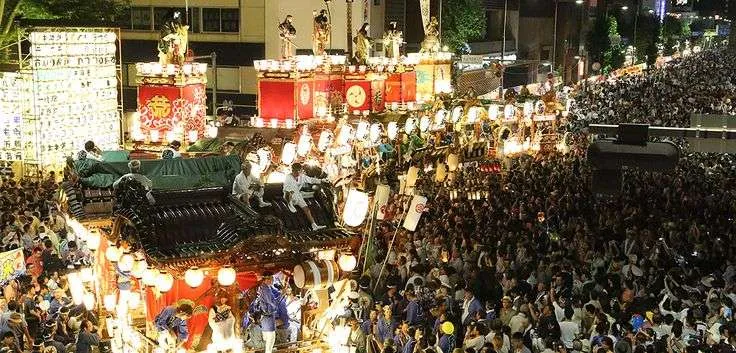
3. Fireworks That Light Up the Sky
After the hard work of pulling the floats, something magical happens — a long fireworks display begins. On the night of 3rd December, fireworks shoot up into the sky for about two hours, creating a dazzling show over the lit-up floats.
Because it’s winter, the cold air makes the fireworks look extra crisp and bright, and their reflection seems to dance on the polished surfaces of the floats.
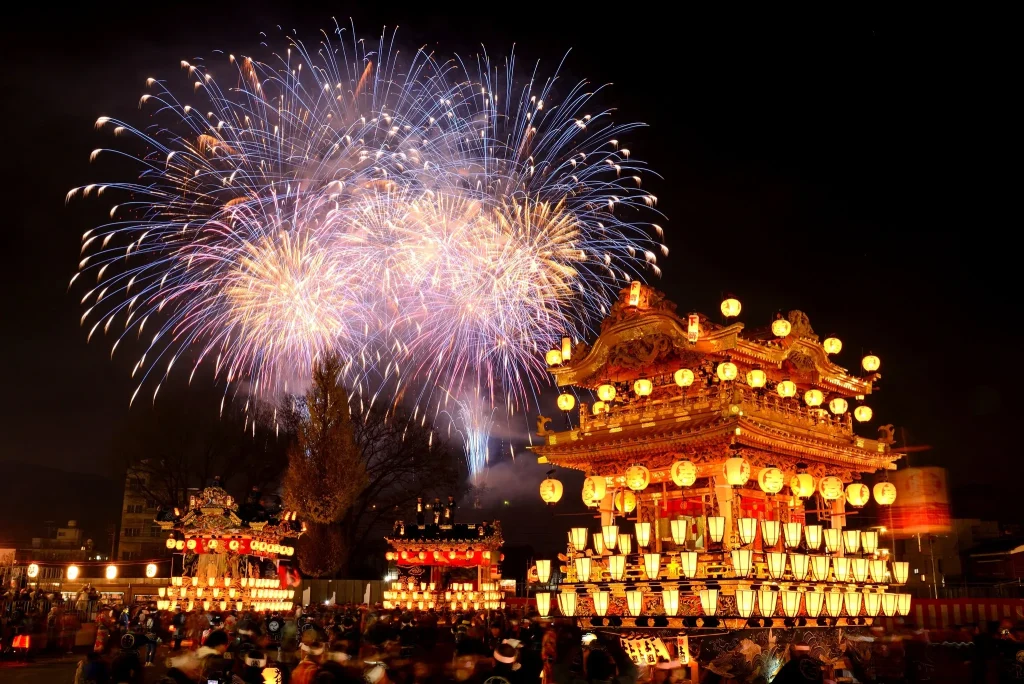
4. Music, Dance, and Community Spirit
Music is everywhere during the festival: drums (taiko), flutes, and traditional festival sounds called Chichibu Hayashi guide the floats and lift everyone’s spirits. There are also performances on the floats, like Kabuki theatre and ritual dances, which make the procession even more lively and cultural.
A neighbourhood runs every float in Chichibu, and community members work together each year to prepare, decorate, and move their float. This festival is not just for show — it’s a way for people to celebrate their heritage and to share in something very important to their town.
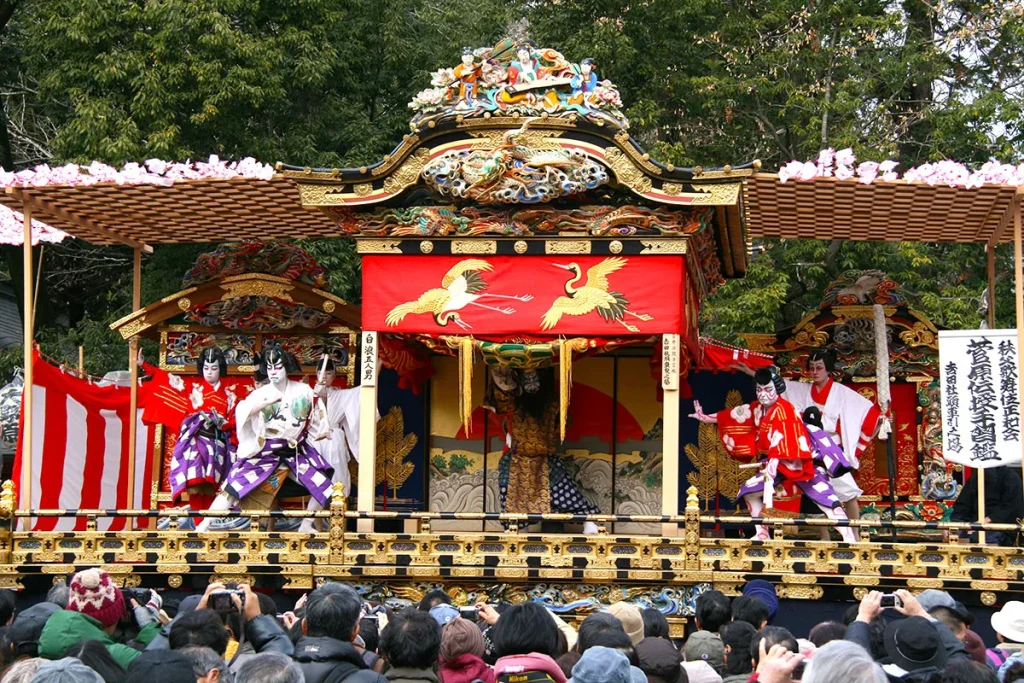
Other Things to See and Do
- Visit Chichibu Shrine, which is at the heart of the festival. It’s very old and beautifully built, and the festival helps connect its spiritual side with local traditions.
- Check out the Chichibu Matsuri Kaikan (Festival Museum): you can see life-sized replica floats and learn about the festival’s history and meaning.
- Try festival food: there are lots of food stalls during the festival, and you might see vendors selling warm treats to keep people cosy on winter nights.
Why It’s So Special for Families
For kids aged 7 to 14 (and their parents!), the Chichibu Night Festival is like a real-life fairy tale:
- Lights galore: The lanterns on the floats and the fireworks make it feel magical.
- Big, strong teamwork: Seeing so many people pull together to move a giant float is inspiring.
- Traditional stories: The Kabuki performances teach you about Japanese myths and history in a fun, theatrical way.
- Winter wonder: Unlike many festivals held in summer, this one takes place in the cold, giving the night sky a special kind of sparkle.
When and Where to Go
- Dates: The festival is held on the 2nd and 3rd of December each year.
- Location: It takes place in Chichibu City, particularly around Chichibu Shrine and the town’s main streets.
- Getting There: If you’re coming from Tokyo, you can take a train (Seibu Railway or Chichibu Railway) and arrive right in Chichibu town centre.
- Crowds: It gets very busy, especially on the night of 3rd December, so arriving early gives you a better chance of getting a great spot to watch the floats and fireworks.
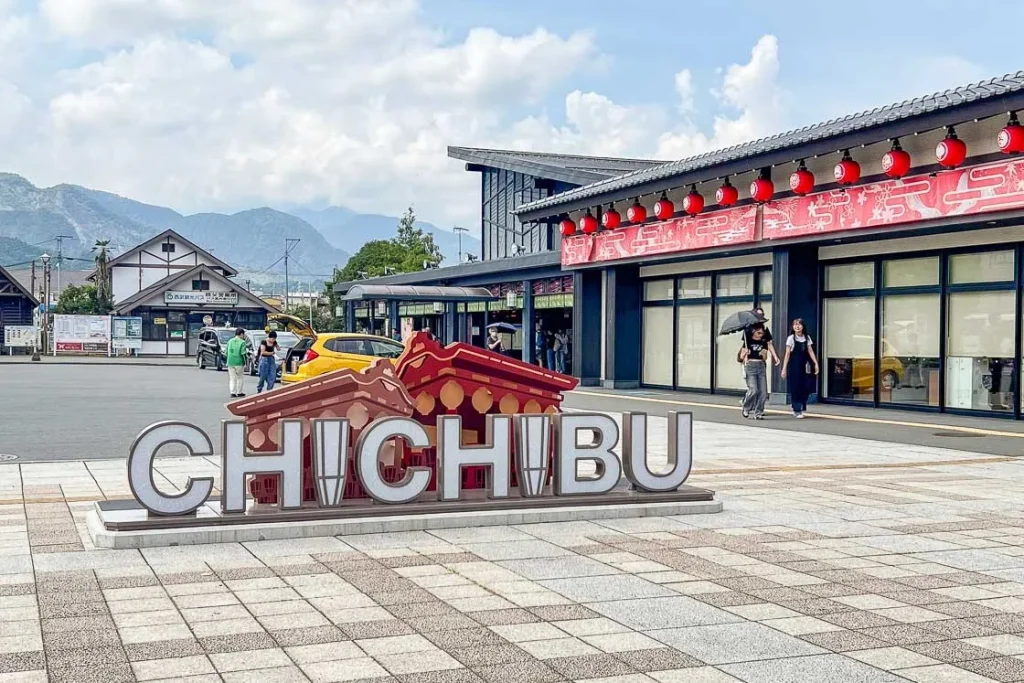
Why the Festival Matters
- Cultural Heritage: The Chichibu Night Festival showcases traditional craftsmanship, music, and dance.
- Community Unity: It brings together people from different neighbourhoods who work together year after year to keep the tradition alive.
- Spiritual Roots: Because it centres on Chichibu Shrine, the festival also has a deep religious meaning — people give thanks and pray for blessings.
- A Winter Spectacle: Many Japanese festivals take place in summer, but the Chichibu Night Festival is special for its winter fireworks, making it a rare, glowing event in the cold season.
Final Thoughts
The Chichibu Night Festival is an enchanting mix of lights, music, tradition, and community. For children and families, it’s a chance to see how people in Japan celebrate their history and faith with creativity and unity. Watching those huge lantern-lit floats rolling down the street, cheering as they are turned or pulled uphill, and then seeing the sky filled with fireworks — it’s a memory that feels both ancient and magical.

If you ever visit Japan in early December, this is a festival you won’t want to miss!
For more interesting articles, please visit www.kidzherald.com

